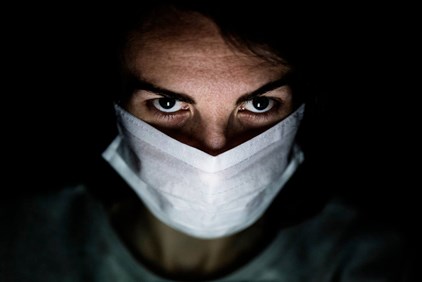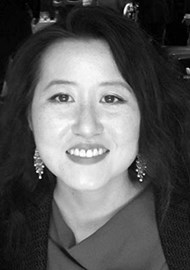Here in the UK, we’ve been in lockdown since 23 March 2020, with much of the rest of the world entering degrees of lockdown since February-March 2020. COVID-19 has dominated the headlines and social media, so without further ado, I bring you What’s Trending: the Lockdown Special.
#coronavirus #COVID-19 #pinkeye #conjunctivitis
Whilst people affected with the novel coronavirus SARS-Cov-2 typically present with respiratory symptoms, there are reports that the virus can cause a mild follicular conjunctivitis clinically indistinguishable from other viral causes of conjunctivitis [1]. Hence the American Academy of Ophthalmologists published an alert stating that it was possible the virus could be transmitted from aerosol contact with the conjunctiva, and therefore judicious precautions with disinfection and wearing personal protective equipment (PPE) should be utilised, as patients with SARS-Cov-2 may present initially to an ophthalmologist [2]. Judging from the currently available data, conjunctivitis as related to COVID-19 is still a rare event, with estimated prevalence of 0.8-3% [3-4]. Much about the disease is not well understood, and this remains an evolving picture. One of the first doctors to die from the disease was an ophthalmologist (Dr Li Wenliang), and it was thought he contracted the disease after treating a glaucoma patient who was positive for SARS-Cov-2 [5].

#coronavirus #eyeinjuries
Oxford Eye Hospital reported an increase in eye injuries, which was felt to be due to an increase in DIY without adequate eye protection during the lockdown [6]. They have issued advice for the general public to wear eye protection when doing DIY or gardening, to keep household cleaners and detergents away from children, and to wear glasses instead of contact lenses to protect the eyes and help prevent coronavirus transmission, as it reduces the need to touch the face [6].
#DrLiWenliang #coronavirus #COVID-19 #whistleblower #ophthalmologist
Chinese Ophthalmologist Dr Li Wenliang was one of the first doctors to sound the alarm about COVID-19. He has now become, as succinctly put by a jogger passing by an event mourning his death in New York’s Central Park in February 2020, “A hero for all the wrong reasons” [7]. At the end of December 2019, he sent a private message to a closed group on WeChat to other doctors explaining there was a possible outbreak of an illness similar to severe acute respiratory syndrome (SARS), and he warned them to protect themselves [8]. He was then detained by the police for “spreading rumours” and forced to sign a confession stating that he had “severely disturbed the social order” and whereby he agreed to “stop [his] illegal behaviour” [7-9]. Despite this, he later decided to post an update on Weibo, China’s version of Twitter, when he became unwell himself and was admitted to the intensive care unit [7]. He sadly died shortly after.
In the aftermath, there was a virtual outpouring of anger and grief, turning into demand for freedom of speech, with hashtags such as #wewantfreedomofspeech and #WuhangovernmentowesDrLiWenlianganapology [7,9]. These hashtags rapidly disappeared, having been censored by China’s cyber police [9]. A subsequent Chinese inquiry has officially exonerated Dr Li by recommending that the reprimand against him be withdrawn and apologised to his family [10]. However, reactions on Weibo to this felt that it was not enough [10]. Dr Li is survived by his wife, pregnant with their second child, and his son [7].
His obituary published by The Lancet ended with a quote stating that “Rising doctors and nurses should remember Dr Li’s name for doing the right and brave thing for his community and the world…” [8]. Indeed, there seems to be little doubt we will forget him. There has recently been published a children’s book teaching them about his story and about the novel coronavirus [11]. It is available for free in several languages at the link provided in the references [11]. As featured in the New York Times, Dr Li’s last post on Weibo has become a virtual ‘Wailing Wall’ of sorts, where users come to post gratitude, prayers, encouragement or comments from those seeking solace from their life troubles [12]. Selected Weibo users’ posts were published in their article, which make for powerful reading [12]. So, even in his death, Dr Li continues to doctor in a way, by administering to his fellow man during this time of crisis. And we shall end with some quotes from the article: “I talked about you in my writing class. Hope the children will remember that you sacrificed your life for them”; “More than 10,000 people came to see you here today. You live in our hearts. You will not be forgotten”; “Good night Dr Li. Hope you’ll have sweet dreams every night” [12].
References
1. https://www.aao.org/headline/
alert-important-coronavirus-context
2. https://eyewire.news/articles/
aao-alert-coronavirus-updates-for-ophthalmologists/
3. https://www.nejm.org/doi/pdf/
10.1056/NEJMoa2002032
4. https://onlinelibrary.wiley.com/
doi/full/10.1002/jmv.25725
5. https://www.bbc.co.uk/news/
world-asia-china-51364382
6. https://www.bbc.co.uk/news/
uk-england-oxfordshire-52260970
7. https://www.gq-magazine.co.uk/
politics/article/dr-li-wenliang-death
8. https://www.thelancet.com/
journals/lancet/article/
PIIS0140-6736(20)30382-2/fulltext
9. https://www.theguardian.com/global-development/
2020/feb/07/coronavirus-chinese-rage
-death-whistleblower-doctor-li-wenliang
10. https://www.theguardian.com/world/2020/
mar/20/chinese-inquiry-exonerates-coronavirus
-whistleblower-doctor-li-wenliang
11. https://freebooks.undercats.media/corona
12. https://www.nytimes.com/interactive/
2020/04/13/technology/coronavirus-doctor
-whistleblower-weibo.html?smid=tw-nytimes&smtyp=cur
(All references last accessed April 2020)
COMMENTS ARE WELCOME





